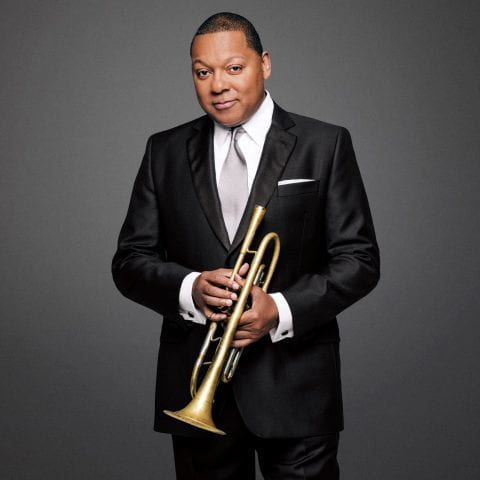An Evening with A.D. White Professor-at-Large Wynton Marsalis and the Cornell Wind Symphony

Bailey Hall
An A.D. White Professors-at-Large keynote public event
Cornell welcomes Pulitzer and GRAMMY-winning artist Wynton Marsalis as A.D. White Professor-at-Large. The Cornell Wind Symphony, conducted by Barbara & Richard T. Silver ’50, MD ’53, and Assistant Professor of Music James Spinazzola, along with Marsalis and his rhythm section, perform a wide-ranging program including ragtime, blues, and jazz.
The event is free and open to all, but a ticket is required.
This event is cosponsored by the Dept. of Music and are part of the Cornell Arts & Sciences’ Arts Unplugged series.
About Wynton Marsalis
Wynton Marsalis is one of the world’s most notable musicians, and the winner of 9 GRAMMY awards. His “Blood on the Fields” was the first jazz composition to win the Pulitzer Prize for Music. He is principal co-founder and Managing and Artistic director of Jazz at Lincoln Center. Marsalis also serves as the Director of Jazz Studies at The Juilliard School and President of the Louis Armstrong Educational Foundation.
Over the past four decades, Marsalis has rekindled and animated widespread international interest in jazz through performances, educational activities, books, curricula, and relentless advocacy on public platforms. Today, Marsalis continues the renaissance that he sparked in the early 1980s, attracting new generations of young talent to jazz and illuminating the mythic meanings of jazz fundamentals.
Marsalis performs and composes across the entire spectrum of jazz and has written jazz-influenced chamber music and symphonic works for revered classical ensembles across the US and abroad. He is inspired to experiment in an ever-widening palette of forms and concepts that constitute some of the most advanced thinking in modern jazz and in American music on the broad scale.
Marsalis’ core beliefs are based on jazz fundamentals: freedom and individual creativity (improvisation), collective action and good manners (swing), as well as acceptance, gratitude and resilience (the blues). Marsalis believes that music has the power to elevate our quality of life and lead us to both higher and lower levels of consciousness. He maintains that music can elevate the quality of human engagement for individuals, social networks and cultural institutions throughout the world.
